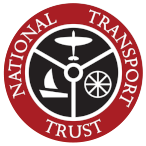A unique opportunity to see historic ships
The Thames Pageant on Sunday 3 June will bring together one of the largest fleets of river vessels of all kinds, ancient and modern, ever seen in one place.
The Sequence of the Flotilla
The organisers have announced a flotilla divided into ten sections with music herald barges separating each one.
- Heralded by The Royal Jubilee Bells, and led by Gloriana, the hand-built, 88-foot rowbarge, the first section will include rowed and paddled vessels, including Watermen’s cutters, modern row boats, kayaks and Dragon boats.
- The second section includes boats carrying the flags of the Commonwealth nations, Realms, Territories and Dependencies. Then comes the Royal section, with support vessels from the former Royal Yacht Britannia, accompanying the Pageant’s flagship, the Royal Barge, on which The Queen will travel. She will be followed immediately by the Guard of Honour.
- In the fourth section will be the Dunkirk Little Ships, followed by historic vessels in the fifth. Following the historic boats will be the working boats, including steam boats and tugs.
- The next – the seventh – will see an array of leisure vessels, followed by the eighth section of narrow boats and Dutch barges. The final two sections are designated for passenger vessels
The parade will stretch for over seven miles taking an estimated 90 minutes to pass viewers on the riverbank from Putney to Tower Bridge. At the Pool of London it will meet with an Avenue of Sail comprising vessels too large to transit London Bridge, including a number of tall ships, Thames sailing barges and, hopefully, PS Waverley.
The official website for the pageant can be found here.

